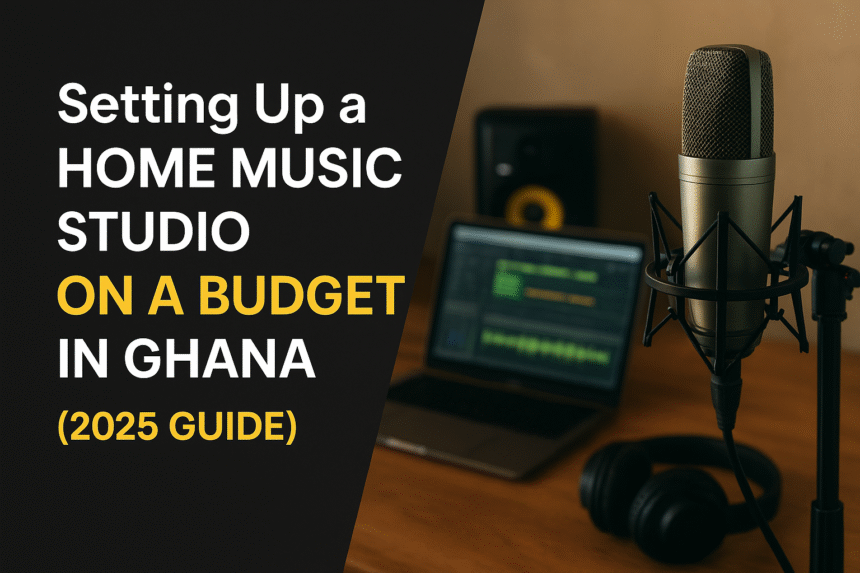Building a home studio doesn’t have to drain your bank account especially if you’re an upcoming Ghanaian artist trying to record music without relying on expensive professional studios. With the right strategy and smart purchases, you can create a functional, great-sounding setup right at home.
1. Plan Your Studio Space
Before buying any equipment, decide where your studio will be. It could be a spare room, a corner of your bedroom, or even a quiet area in your living space. Choose somewhere with minimal outside noise and a stable electricity supply.
Tip: The more control you have over noise and echo, the better your recordings will sound.
2. Essential Equipment Checklist
You don’t need the most expensive gear to start. Focus on getting the basics:
-
Laptop or Desktop Computer – This will run your recording software (DAW).
-
Digital Audio Workstation (DAW) – Free or affordable options like Audacity, Cakewalk, or Reaper can get you started.
-
Audio Interface – Converts your voice/instrument into high-quality digital audio. Popular budget options in Ghana include Focusrite Scarlett Solo and Behringer UMC22.
-
Microphone – A good condenser mic like the Audio-Technica AT2020 or FIFINE K669B can capture clear vocals.
-
Headphones – Closed-back headphones like the Audio-Technica ATH-M20x or Samson SR850 for accurate sound monitoring.
3. Soundproofing on a Budget
You don’t have to install expensive foam panels right away. Try these DIY methods:
-
Hang thick blankets or curtains on walls.
-
Place a carpet or rug on the floor to absorb echo.
-
Record in a small space like a closet lined with clothes for a natural sound booth effect.
4. Free & Affordable Plugins
Great plugins can enhance your sound without costing a fortune. Many DAWs come with built-in effects, but you can also download free VSTs like:
-
TDR Nova (EQ)
-
Valhalla Supermassive (reverb/delay)
-
OTT Compressor by Xfer
5. Practice & Experiment
The best way to improve your sound is to keep recording, mixing, and experimenting with your setup. Your skill as a producer/artist will matter far more than the cost of your gear.
6. Networking & Collaboration
Even with a home studio, don’t isolate yourself. Connect with other Ghanaian artists, exchange beats and vocals, and learn new techniques from fellow creatives.
Final Word:
You don’t need millions of cedis to start making great music from home. With patience, creativity, and a budget-conscious approach, your home studio can become the birthplace of your next big hit.
CHECK THIS: Choosing the Perfect Stage Name for Your Music Career
source: kaknews.com






